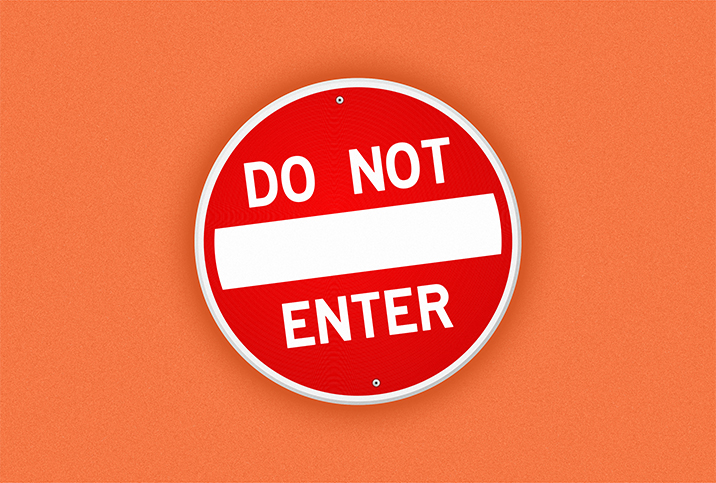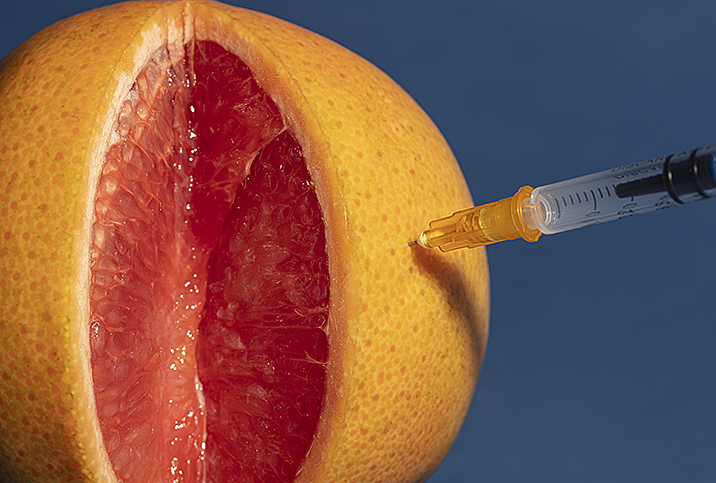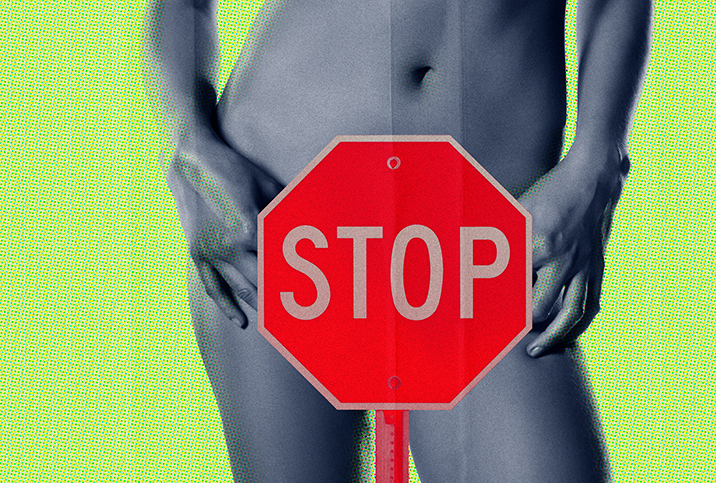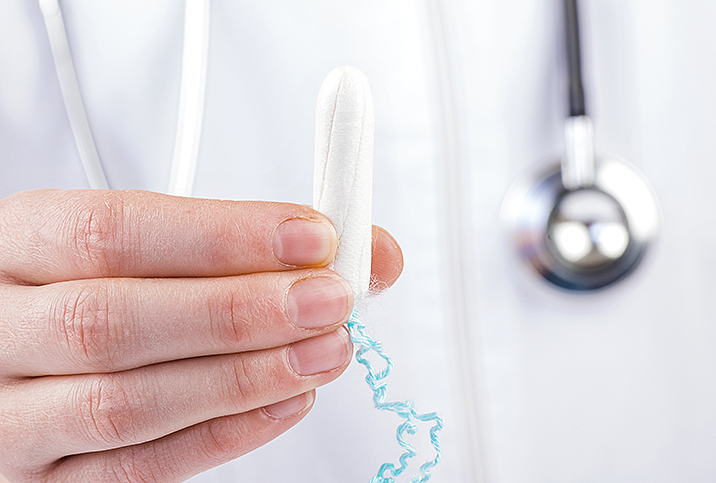Sex Always Hurt Me—Now I Might Know Why

In a gentle pink room, I sat in the chair, my legs pried open.
"There's nothing wrong with you. You're 27. You should start thinking about having a baby."
No questions asked. I couldn't fathom a baby. I couldn't even put a tampon in.
Paradoxically, I walked out of a clinic that empowers women's health, worried I'd never live out a sacred part of my womanhood because of pain. I took what I was told as truth, that nothing was wrong, and continued to make excuses to avoid being physically intimate.
For years, I thought my body was defying me by tensing up and shutting out intimacy and love. It hijacked not only these special moments but entire nights and days after. What was meant to be one of life's greatest pleasures left me scared, anxious, embarrassed and ashamed.
Was my body actually protecting me because I was repressing my sexuality? Was it my body's way of communicating I was with the wrong gender? I thought I was destined for a life of painful sex...until I came out as queer.
Putting painful sex assumptions to bed
Physical pain and discomfort can be linked to emotions, said Jesse Kahn, L.C.S.W.-R., the director and sex therapist at the Gender & Sexuality Therapy Center in New York City. "I think pain can be a way of our body protecting us," Kahn said. "I like to start by getting curious and learn about the pain, by befriending it, getting to know its story and asking its purpose."
Kahn said people experiencing discomfort during sex is more common than we know. Sonia Bahlani, an OB-GYN and pelvic pain specialist in New York City, agreed that the numbers are grossly understated.
"The scientific data tells us 10 to 15 percent of women have experienced painful sex, but I'd say the numbers are more like 25 to 40 percent," Bahlani said. "This is because it's stigmatized in our culture. We don't speak up about it. As I tell my clients, an absence of pain doesn't mean pleasure. We need to step beyond treating the pain and focus on enjoying sex."
Getting to the root cause of pain informs targeted treatment, which Bahlani said is a multipronged approach.
In her clinic, Bahlani sees myriad physiological, emotional and societal reasons for female sexual dysfunction. The conditions are usually layered and don't occur alone. For example, a patient might present with vulvodynia, vaginismus and pelvic floor dysfunction.
Bahlani used the analogy of the stress response of clenching the jaw. A similar action occurs with the pelvic floor, which tenses up when stressed.
"Some women are born with up to 70 percent more nerve endings in their vulva," Bahlani said. "The reflective response is a guarding maneuver."
The mind-body connection
Since sex is both physical and emotional at the same time, the emotional part can lead to physiological changes.
"We can absolutely harbor emotions in our body," Bahlani said. "This isn't to say that 'it's all in our heads,' but rather that repressed emotions can manifest in many different ways. Neuromuscular changes are just one response. It's small-minded to think sex is just physical."
Beyond the physical and emotional aspects, sex has societal connotations. In some cultures, sex is transactional; desire and pleasure aren't necessary. For some people, a virgin is preferable. Some religions abstain from sex altogether.
"Through this lens, sex is a manmade concept," Bahlani added.
Sex is multifaceted. It has a different role for every individual. And pain, any type of pain, fluctuates in nature. Together, sex and pain make for a sensitive condition to treat.
"It's an incredible experience to work with a woman to reach a state where sex isn't only pain-free but also enjoyable, Bahlani said. "They almost become a different person. It has flow-on effects to so many other parts of their life."
Sexual energy is a life force
While I can't discount the myriad physical reasons sex can hurt, I believe my emotions were the catalyst for my inability to be intimate with men.
When I came out and opened up my sex life, it was a relearning of sorts. A coming of age, all over again. It was an opportunity to redefine my relationship—with sex, with myself, my partner and life itself. I'm still on this journey to fully liberate my body. Much like coming out, it's a process; a process to dissolve residual shame and lean into my sexual energy—a power source for creativity and deep connection. Ironically, going against heteronormative ideals has helped me feel more like a woman.
Psychiatrist and psychoanalyst Carl Jung said: "One encounters sexuality everywhere; thus, in anything one is involved, their sexuality will appear, too." In other words, we can't separate sexual energy from all parts of our life.
When we look at repressed sexuality and painful sex through this lens, it's impossible to disconnect them. Confusion about sexual preferences can be the catalyst of sexual repression—physical pain, anxiety, guilt and a general lack of interest—or it can be the start of a whole new chapter of life, where sex is a mind, body and soul experience, free from pain and full of pleasure.


















